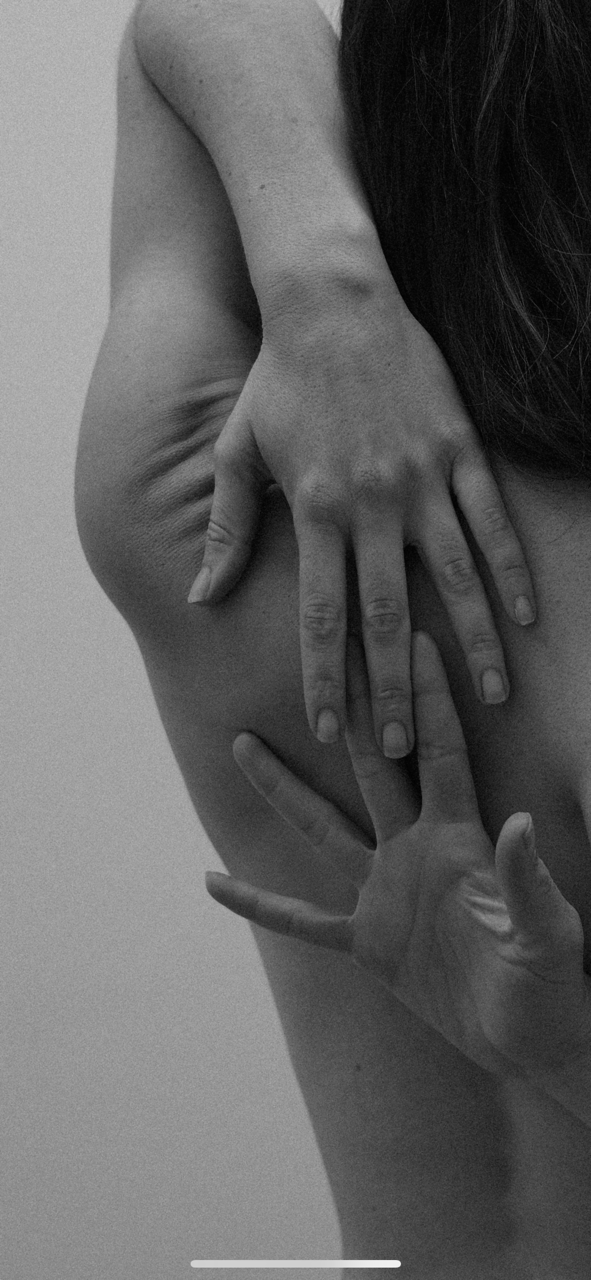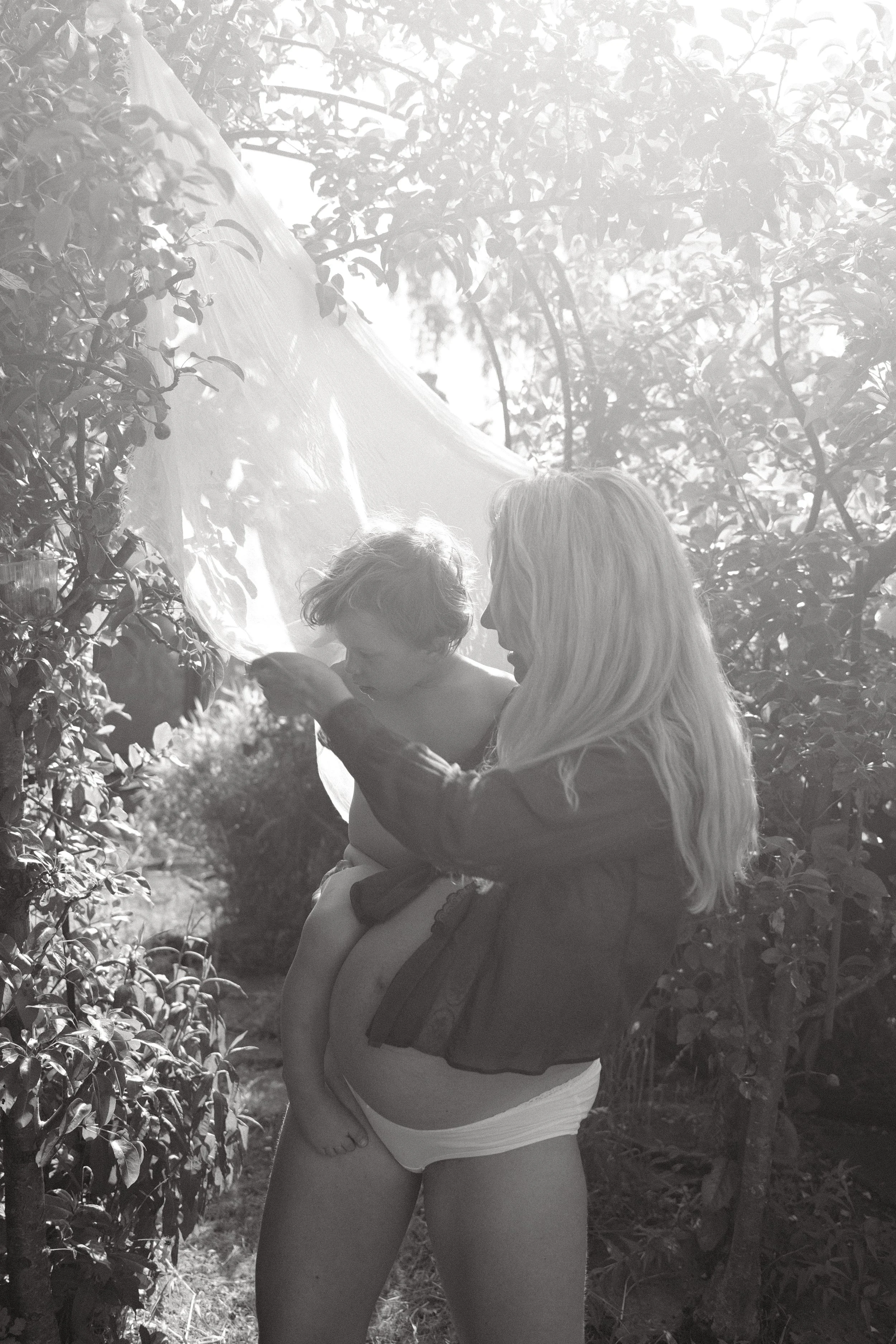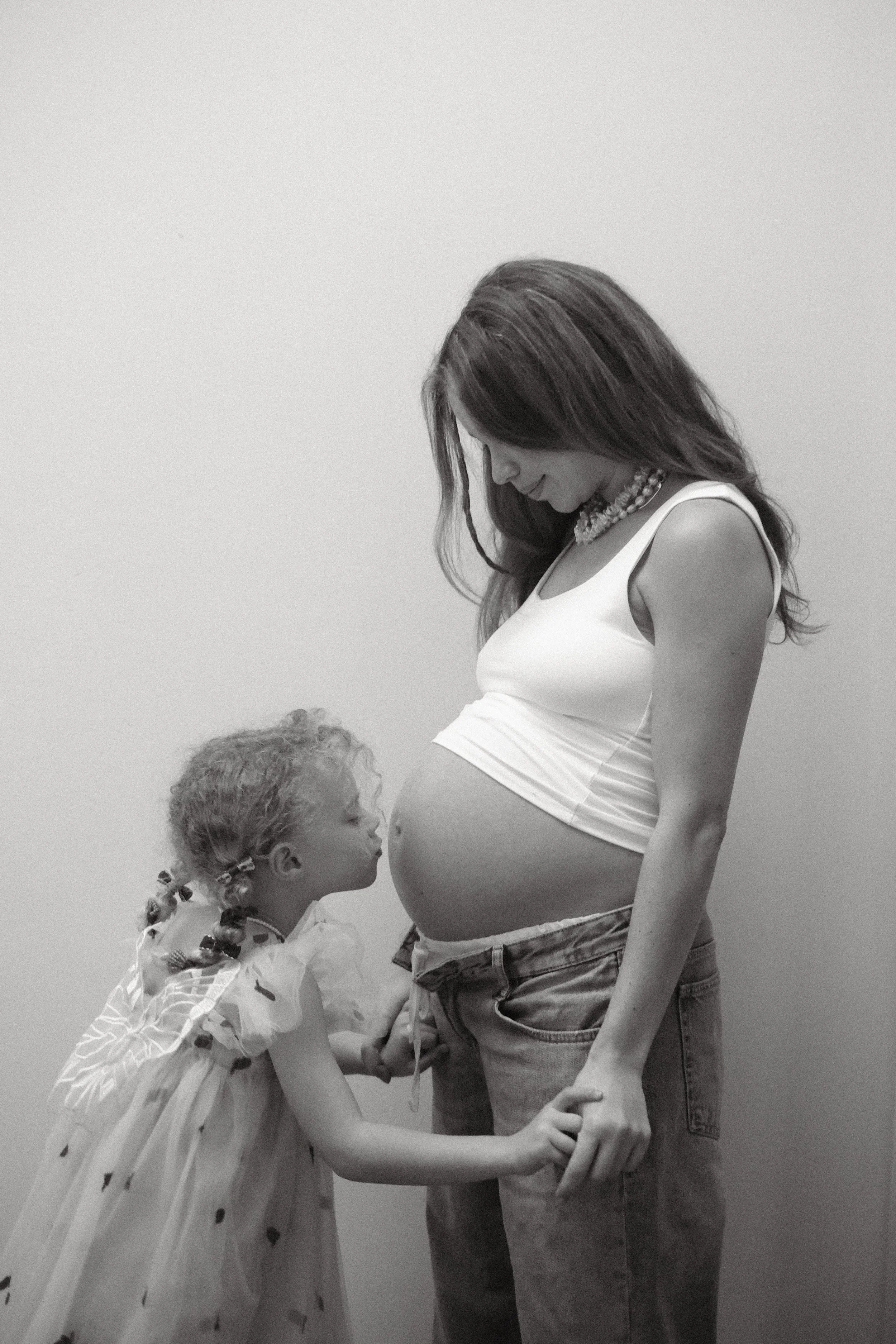Trusting the Timing of Birth: Softening Into Surrender
There is a moment near the end of pregnancy when the waiting can feel louder than everything else. The body is tired, the mind wants certainty, and the world around you seems full of suggestions on how to make labour begin.
It’s completely understandable to consider ways of encouraging labour ~ even so‑called “natural” ones like pressure points, stimulation, or gentle techniques meant to nudge things along. There is absolutely nothing wrong with that impulse. It comes from a place of longing, readiness, and love.
I’d like to offer an alternative view to consider, something subtle but important: Even “natural” ways of trying to start labour can still carry the same underlying message to the body:
“You are not moving fast enough. I need you to start now.”
That message matters.
Why the Birth Environment Matters (More Than You Think)
When we picture birth, we often focus on the people involved, the location, or the timeline. What is sometimes overlooked is the environment itself, yet it is one of the most powerful influences on how labour unfolds.
The birth environment is not just a backdrop. It is a living, active part of the experience, shaping how your body responds, how your hormones flow, and ultimately how supported and safe you feel.
Partner’s Guide to Supporting a Birthing Person
Birth is a team effort. Even though the birthing person is the one experiencing contractions, your presence as a partner can shape the entire atmosphere of the birth room. The way you touch, speak, and protect the space can help them feel safe, grounded, and supported, which can positively influence the flow of labour. You do not need to know everything about birth to be a great support person. What matters most is your willingness to show up fully, stay present, and respond to their needs in the moment.
How Trauma & Stress Affect Birth (and How to Heal)
Birth is not just a physical process, it’s also an emotional and nervous system experience, where the mind-body connection leads.
Our bodies carry memories of everything we’ve lived through, including moments of stress, fear, and trauma. Sometimes these experiences remain quiet for years… until a big life event, like giving birth, brings them to the surface. This doesn’t mean birth has to be traumatising. It means we have an opportunity: to approach it with awareness, gentle preparation, and a circle of support.
The Difference Between Knowledge and Embodied Readiness
The Difference Between Knowledge and Embodied Readiness
When preparing for birth, it’s natural to seek out information.
We read books. We attend classes. We listen to podcasts.
We fill our heads with as much knowledge as we can.
This kind of preparation is valuable, but it’s only one part of the picture.
There’s a difference between knowing about birth and feeling ready to birth.
That difference lives in the body.
How Nervous System Support in Pregnancy Shapes Birth
How Nervous System Support in Pregnancy Shapes Birth
Pregnancy is a time of profound change - physical, emotional, mental, and spiritual.
It’s also a time when your nervous system is more active than ever, adapting to the demands of a growing body and the anticipation of birth.
The way you care for your nervous system in pregnancy has a direct influence on how you experience labour and postpartum.
It can shape not just how your body responds to birth, but how you feel about it in the months and years after.
Supported vs. Managed: A Subtle but Powerful Shift in Birth
Supported vs. Managed: A Subtle but Powerful Shift in Birth
There’s a quiet but profound difference between being supported in birth… and being managed.
As a doula, I’m not here to run your birth.
I’m here to help you feel rooted in your power, your intuition, your right to move through this threshold on your terms.
Support is quiet, respectful, collaborative.
It trusts the process.
It trusts you.
Your Body Knows How to Birth — Here’s How We Listen
Your Body Knows How to Birth - Here’s How We Listen
Birth is not something we do to the body.
It’s something the body already knows - and we learn to listen.
Your body carries a wisdom that is ancient, primal, and deeply yours.
Listening to the body in birth might look like:
– Moving toward comfort without overthinking it
– Making sound that comes from somewhere deeper than words
– Trusting the urge to be upright, to rest, to sway, to roar
– Knowing when to say “no” or “wait” or “now”
– Feeling your baby and your body working together
As a doula, my role is not to teach your body what to do.
It already knows.
My role is to help create the conditions where you can hear it - clearly, confidently, and without interruption.
The body knows.
The body remembers.
The body leads.
We listen.
Why Postpartum Is Sacred 𖦹 Not Secondary
What Real Postpartum Support Looks Like (and Why We Need It)
In many Western cultures, we prepare extensively for birth, birth plans, baby things, hospital bags - but when it comes to postpartum, the plan often ends at “survive it.”
The truth is: postpartum is not just recovery. It’s a complete reorientation of body, mind, identity, and family. And yet, it's often the most overlooked phase of the perinatal journey.
As a doula, I’ve seen time and again that when families are held with intention and care in the weeks following birth, everything shifts - healing deepens, bonding strengthens, and new parents feel less alone.
So what does real postpartum support actually look like?
How Sound Healing Supports Postpartum Nervous System Repair
How Sound Healing Supports Postpartum Nervous System Repair
The early postpartum window is often described as beautiful, tender, and sacred - and it is. But it’s also intense. The nervous system of a new parent is doing extraordinary behind-the-scenes work: recalibrating, responding to the baby’s needs, integrating the birth experience, and adjusting to a new identity.
Sound healing offers a gentle, non-invasive way to support this transition - not just emotionally, but physiologically.
Let’s explore how.










